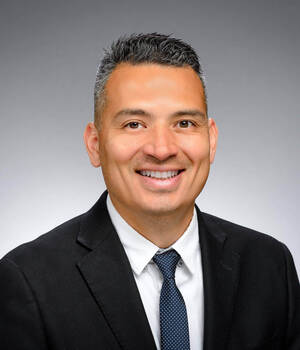Access to improved resources fails to impact economic outcomes for Black families across generations

For many, neighborhoods that offer children access to better resources, less crime and less violence often result in better opportunities for healthier and more prosperous lives. Indeed, researchers studying the effects of moving to “opportunity neighborhoods” argue that very point and many policymakers have taken notice. However, so far, researchers have only accounted for the neighborhoods where children grow up, ignoring the long-term effects that parents’ childhood neighborhoods have on children’s adult economic well-being.

Expanding on the relatively short-term and single-generation body of research, University of Notre Dame assistant professor of sociology Steven Alvarado used 35 years of data from the National Longitudinal Survey of Youth from 1979 to 2014 to study what happened when multiple generations of Black, white and Latino families lived in disadvantaged neighborhoods.
Somewhat surprisingly, Alvarado and his co-author, Alexandra Cooperstock, a doctoral candidate in sociology at Cornell University, found that Black families — regardless of where they were raised — still ended up in similar economic circumstances as they moved into adulthood and entered the workforce.
In their study, “The Echo of Neighborhood Disadvantage: Multigenerational Contextual Hardship and Adult Income for Whites, Blacks, and Latinos,” which was recently published in the journal City and Community, the researchers concluded that race was the chief factor in contributing to one’s economic success in the U.S. over multiple generations.
“Any benefits accrued by growing up in more advantaged neighborhoods may be undercut by enhanced discrimination in the labor market and society at large,” the researchers wrote. “Race, not class origins, is the dominant factor governing the economic mobility of Black individuals.”
The researchers used the following seven variables when defining an “advantaged” versus a “disadvantaged” neighborhood: percent of residents at or below the poverty threshold, percent jobless, percent not in the labor force, percent with at least a bachelor’s degree, percent who are managers and professionals, median household income and median housing value.
Alvarado explained that neighborhood mobility does not work as well for Black individuals in the United States as it does for white and Latino individuals in terms of economic development.
“When comparing Black families who were exposed to multiple generations of neighborhood disadvantage versus Black families who were not, they both end up having the same economic outcomes in adulthood,” he said. “Race still trumps class origins in America when it comes to the labor market.”
Alvarado said his study employed a novel technique not used in previous studies of the effects of neighborhood processes on economic outcomes: the examination of intergenerational associations rather than just using a single generation. The researchers linked exposure to neighborhood disadvantage in both mothers’ and children’s childhoods with the adult income of the children — which, researchers wrote, “will provide a more complete picture of neighborhood influence and expand our understanding of how inequality forms and is maintained over time.”
The longitudinal survey data allowed the researchers to link neighborhood conditions with economic outcomes across multiple generations for white, Latino and Black families.
“When comparing Black families who were exposed to multiple generations of neighborhood disadvantage versus Black families who were not, they both end up having the same economic outcomes in adulthood. Race still trumps class origins in America when it comes to the labor market.”
One of the more compelling findings of their study, researchers said, was that Latino families experienced the most positive growth in adult earnings. These findings suggest that Latinos — especially non-Black Latinos — are likely to benefit more in the long run, economically speaking, than white or Black individuals when removed from their disadvantaged neighborhoods.
“There’s definitely a lot more room for neighborhood-level opportunity to manifest into economic success for Latino than for Black individuals,” Alvarado added.
And Black residents’ incomes, the researchers said, “continue to be immune” to whether their family experienced a disadvantaged or advantaged neighborhood across multiple generations.
“Moving Black individuals to 'opportunity neighborhoods' could procure positive outcomes — such as improved cognitive development and behavior and decreased illicit drug use during childhood and adolescence,” Alvarado concluded. “But once it gets to the labor market, it’s a whole different story.”
The researchers argued that structural change is needed in the way that Black individuals are treated in the U.S. labor market to increase their economic success. Efforts to simply move Black residents to more advantaged neighborhoods “are unlikely to have a significant impact on racial income gaps,” they said.
Contact: Tracy DeStazio, assistant director of media relations, 574-631-9958 or tdestazi@nd.edu
Latest Faculty & Staff
- Faculty receive prestigious early career awards from National Science FoundationDuring the 2024-25 academic year, four researchers in the University of Notre Dame’s Colleges of Engineering and Science received early-career awards from the National Science Foundation.
- In new research, Roy Scranton explores climate change and the limits of human progressIn his most recent book, “Impasse: Climate Change and the Limits of Progress,” Scranton, an associate professor of English, defines the impasse he sees as “not only political and institutional, but cognitive, existential and narrative” and asserts that the only path forward is through embracing what he terms ethical pessimism. “A lot of people confuse pessimism with nihilism, apathy and despair,” Scranton said. “But pessimism is actually about recognizing our limits, letting go of unrealistic goals, finding solidarity in the fact of human suffering and doing what you can now, not in some utopian future.
- Joule Bergerson, energy technology assessment expert, named new director of ND EnergyND Energy faculty director Joule…
- In memoriam: Alasdair MacIntyre, the Rev. John A. O’Brien senior research professor of philosophy emeritusAlasdair MacIntyre, the Rev. John A. O’Brien senior research professor of philosophy emeritus and a permanent senior distinguished research fellow at the de Nicola Center for Ethics and Culture, died on May 21, 2025. He was 96.
- Santiago Schnell, dean of Notre Dame’s College of Science, appointed as provost of DartmouthSantiago Schnell, the William K. Warren Foundation Dean of the College of Science at the University of Notre Dame, has accepted an appointment as provost at Dartmouth College. He will depart Notre Dame at the end of June and begin his new role in July.
- Notre Dame’s Fightin’ Irish Battalion receives Department of Defense award as nation’s top Army ROTC programThe United States Department of Defense honored the University of Notre Dame’s Army ROTC Fightin’ Irish Battalion as the nation’s top Army collegiate program for the 2023-24 academic year. This will be the first time the unit has received the department’s Educational Institution Partnership Excellence Award, which recognizes the program’s achievements in recruiting, educating, training and commissioning leaders of character to be the next generation of military officers.












